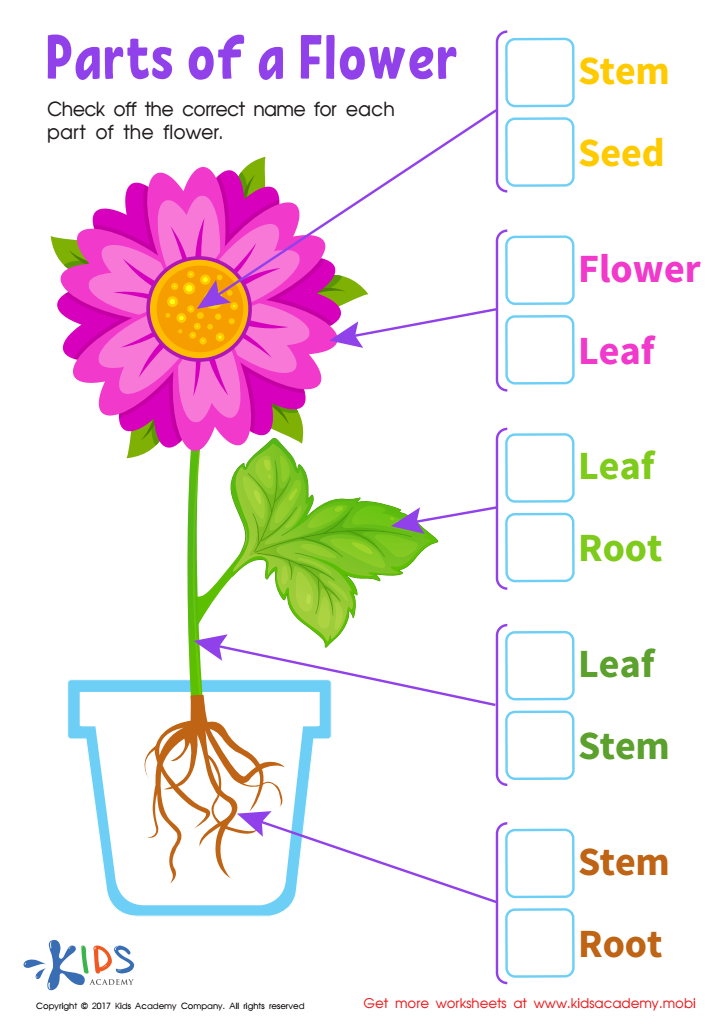Life Science Worksheets for Ages 3-4
3 filtered results
-
From - To
Discover engaging Life Science Worksheets designed for ages 3-4 on Kids Academy! Our printable worksheets make learning about the world around us exciting and fun. From exploring animals and plants to understanding basic life cycles, each activity is tailored to spark curiosity and foster a love for nature. Easy-to-follow instructions and playful illustrations ensure youngsters grasp foundational science concepts effortlessly. Ideal for preschool classrooms or at-home learning, these worksheets support early education standards. Boost your child’s knowledge and readiness for future schooling with our interactive and educational Life Science resources. Start your adventure in science today!


Parts Flower Printable


Herbivores Printable


Carnivores Worksheet
Parents and teachers should care about Life Science for children aged 3-4 because fostering curiosity and understanding about the natural world at this critical developmental stage lays the groundwork for lifelong learning and responsibility. During these formative years, children are naturally curious and eager to explore the world around them. Introducing Life Science concepts helps tap into that curiosity, encouraging observation and inquiry.
By engaging with basic Life Science, young children develop critical thinking skills as they ask questions about plants, animals, and habitats. This can enhance their cognitive development, encouraging them to make connections, solve problems, and understand cause and effect. Additionally, learning about living things and how they interrelate promotes empathy and a sense of responsibility towards the environment and other living beings, fostering a compassionate and environmentally-conscious future generation.
Moreover, integrating Life Science aligns with social learning and language development, as children discuss and describe what they see. Activities such as planting seeds, observing insects, and discussing animals' needs involve sensory experiences that are crucial for brain development at this age.
Therefore, emphasizing Life Science for young children not only enriches their immediate learning experiences but also builds essential cognitive, emotional, and social skills that benefit them throughout their educational journey and beyond.
 Assign to My Students
Assign to My Students




.jpg)










